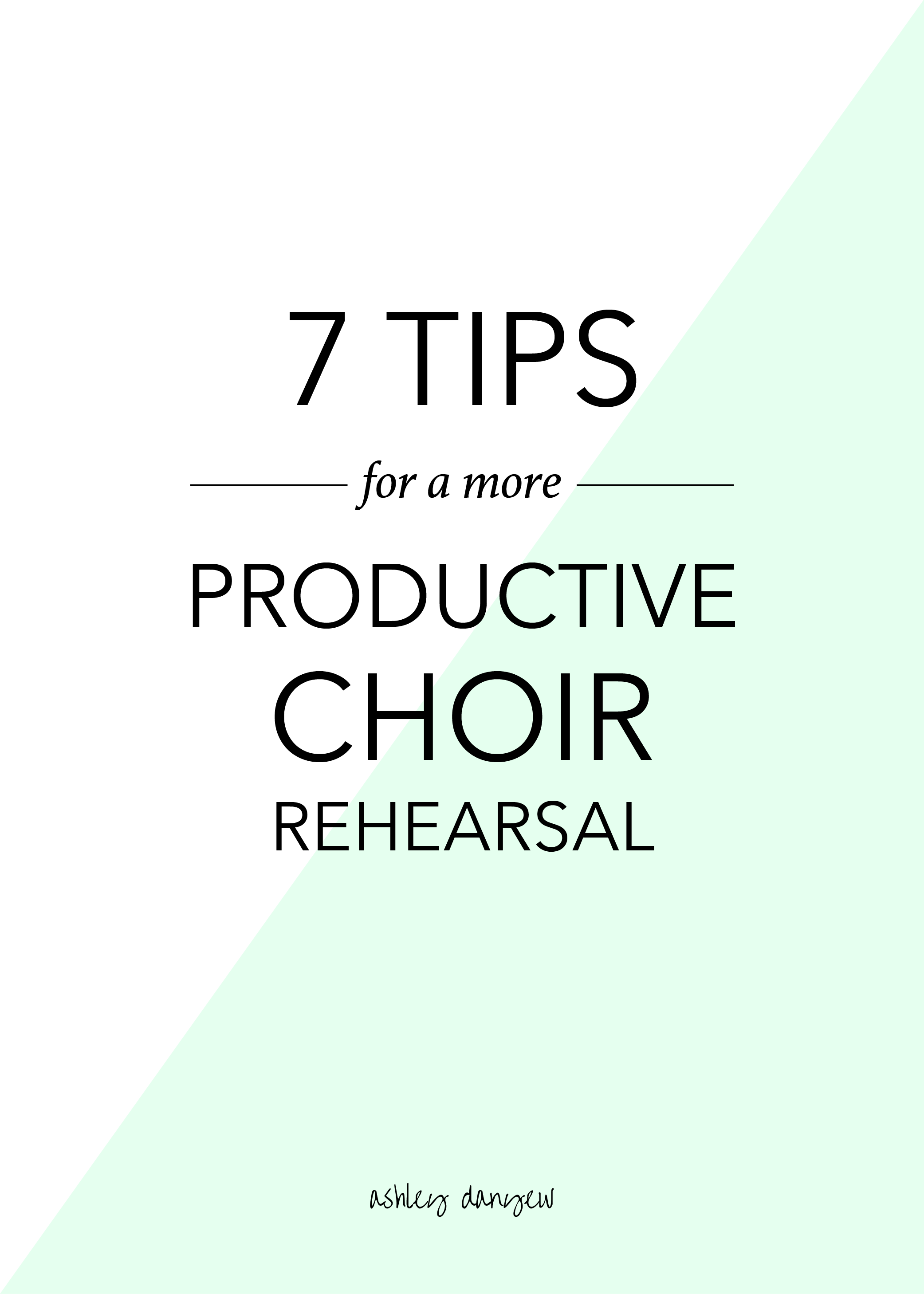You know the feeling:
Making progress, learning, improving, feeling that sense of accomplishment and achievement.
Ah yes, a productive choir rehearsal is something we all strive for, though actually attaining it may be another story.
You might be really organized, good with time management, and good about getting things done on your own, but add a group of chatty adults to the mix and suddenly a productive rehearsal feels like a more distant goal.
How can you get your group focused and keep everyone on task in rehearsal?
In this post, I’m sharing seven helpful tips for a more productive choir rehearsal.
No. 1 - Start rehearsal on time.
It sounds like a simple concept, but this is something that requires diligence. Make a commitment to start rehearsal right on time each week and you'll communicate to your group that you value and respect their time (and that you have an agenda to get through!). Which brings me to my next point...
No. 2 - Go in with a plan (or at least a rehearsal order).
If you're going to have a productive rehearsal, you need to know what needs to be done. You need to have priorities. Spend a few minutes during the week planning out what you'll rehearse, when you'll rehearse it (beginning of rehearsal, middle, or end), and how long you'll spend on it.
I find it's helpful to share your rehearsal plan with choir members so everyone' s on the same page. It's helpful for them to be able to follow along, get their music in order, and work with you toward the goal of getting through everything on the list.
Related post: How to Plan a Productive Choir Rehearsal
No. 3 - Distribute music in advance.
Handing out music during rehearsal wastes So.Much.Time. And then next week, you'll have to do it again because Suzie wasn't here last week and didn't get a copy. Do yourself (and everyone else) a favor and pass out music ahead of time.
Every choir has boxes for folders and hymnals, right? Take advantage of this. Pass out music before rehearsal and ask choir members to check their boxes on the way in to rehearsal.
No. 4 - Keep a jar of sharpened pencils on the piano.
If you ask your choir to mark their music during rehearsal, it will save time (and interruption) to have a few extra pencils on hand. Keep a jar of sharpened pencils somewhere close by, where choir members can grab one if they need one without disrupting rehearsal or distracting their neighbors.
No. 5 - Give everyone a 5-minute talk break in the middle.
You want your choir members to talk to each other. This is healthy! However, when you're there to rehearse, you need everyone to focus and pay attention so you can get things done and make music together. Give them an incentive (and a mental break) by letting them talk to their neighbor for a few minutes in the middle of the rehearsal. Put this on your rehearsal plan so everyone knows when it will be!
No. 6 - Don't default to starting every piece at the beginning.
Often, it's not the beginning of a piece that needs work - it's the middle or the end. If your rehearsal time is limited (and let's face it, rehearsal time is always limited!), carefully choose what parts of an anthem you will spend time on. Start at that contrasting middle section, then put it back in context. Or, start at the end and work your way backwards.
When you're first starting a piece, I recommend singing all the way through, or at least getting a sense of the piece before breaking it apart into sections. But when you're really working on a piece (the middle few weeks of the rehearsal sequence), you may choose to rehearse just one section this week and sing through the piece in its entirety next week.
Related post: My Step-By-Step Process for Rehearsing a New Anthem
No. 7 - Keep a quick pace.
Choir members will usually follow your lead. If you go in with a plan and a commitment to getting work done, they will often follow suit. Don't spend too much time talking or going off on tangents. Keep the rehearsal focused. Don't give them opportunities to talk to their neighbors or get too distracted (that's what the talk break is for!).
Challenge your singers to think their parts or listen critically to vowels or breath or phrasing while you work with another section. Keep them actively engaged.
Develop the practical skills you need to lead and teach your choir with creativity and confidence.
Join me inside Music Education and Leadership Skills for the Adult Choir Director, an online mini course for church musicians.
Packed with practical tools, resources, and strategies you can use right away, you’ll learn the basics of how adults learn, how to teach vocal technique and choral methods, develop sight-reading skills, choose music, and plan rehearsals.
I’d love to hear from you:
What are your favorite tips for running a productive rehearsal?







































